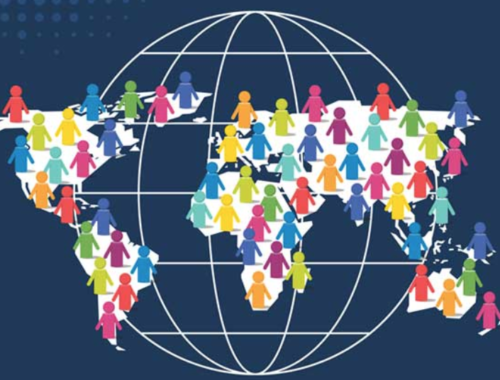Climate Optimist: Part 1
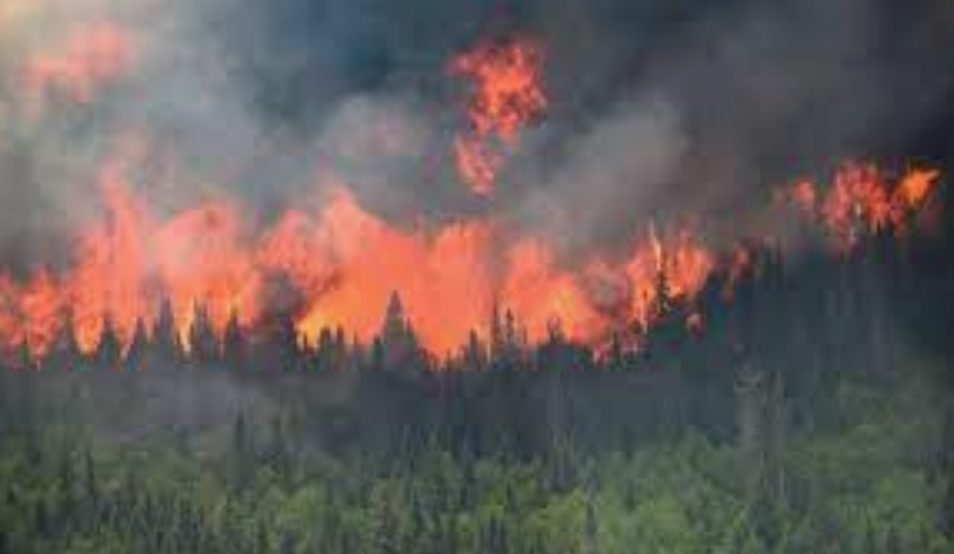
There is More Good News in the World Than Bad
As was her custom, Miranda turned on the 9 o’clock CBC National News. For over two months the lead story had been about the fires raging in many parts of Canada.
Every night there were graphic pictures of billowing orange flames merging into various shades of gray, smoke silhouetting blackened pine trees and people’s homes either burned or sitting perilously close to the edge of the burning forest. There were images of water bombers and exhausted firefighters leaning against shovels or holding a chainsaw, and interviews with frightened residents and running commentary about the huge increase in the number of fires brought about by climate change.
Newspaper and radio programmes also highlighted the fires and other doom and gloom stories about climate change:
- Reports from the U.N. saying we only have a few years to decrease carbon emissions and keep temperature increases below 1.5 degrees Celsius;
- Governments announcing zero emission targets, only to be combated by oil companies saying these targets were impossible and downplaying the negative impact of fossil fuels;
- Stories of high-ranking politicians flying off somewhere consuming huge quantities of fuel and pictures of floods and climate-related overheated ocean waters.
Miranda was sympathetic to the people who had lost their homes but was bored hearing these stories over and over again, and often tuned out. She also felt depressed, angry, frustrated, helpless and concerned about the future for their grandchildren.
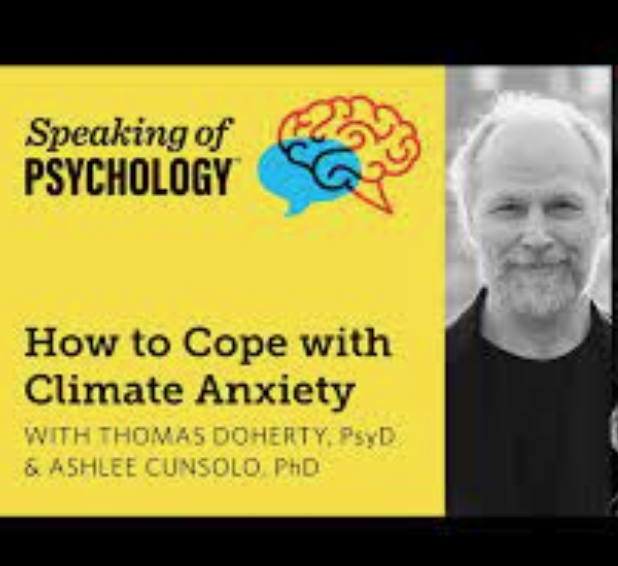
Miranda was not alone. A recent survey in the U.S. revealed 53% of Americans feel helpless about climate change and another indicated 75% of youth felt frightened about the future because of climate change. In fact, helping people deal with climate change anxiety is an increasingly popular specialty for psychologists. Applying an environmental perspective to mental health is called Ecotherapy. Dr. Thomas Doherty from Portland Oregon is one of the psychologists in the U.S. who specialize in this.
Miranda shut off the T.V., turned to her husband Harland and said, “Surely there must be some good things going on with climate change.” They had had this discussion before. They always reached the point that, “Maybe these fires are not so bad.” Fires are a natural thing and often there are controlled burns to manage the forest and allow for new growth. Possibly this year is unique…
This time they decided to find out more. They started with the internet. They typed in CLIMATE OPTIMISM and discovered there was a whole movement focusing on CLIMATE OPTIMISM.
Many of the participants call themselves ECOREALISTS.
They believe the world is not headed for Armageddon, but they are not Polyannas either. They believe there are extremely serious climate-related issues but there are many actions that can and are being made. YES, we humans can preserve the planet.
They found a definition produced by the Harvard T.H. Chan School of Public Health which said, “Climate Optimism is not about denying what we can see with our own eyes or ignoring our grief for what we have lost. It is understanding that we know how to prevent things from getting worse and that we are making progress.”
Putting this into action, the Harvard School of Public Health now produces a monthly newsletter called, “The CLIMATE OPTIMIST.” The newsletter contains positive stories about climate action and ways for you to act. https://www.hsph.harvard.edu/c-change/climateoptimist/
They believe if you know what is going on – both good and bad – it will likely create a desire to take action. The resulting equation is:
Grounded Awareness + Empowered Action = Climate Optimism
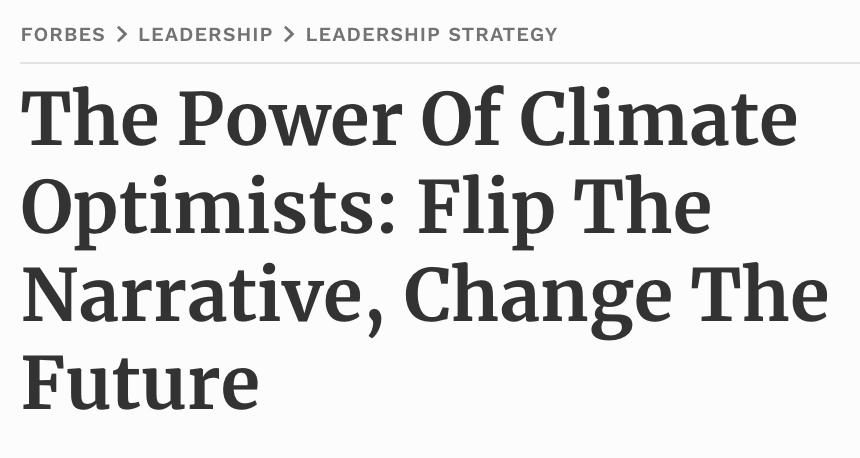
Some of the positive happenings were highlighted in an April 17th, 2023 Forbes magazine story called, “The POWER OF CLIMATE OPTIMISTS.” The article states positively:
1) The energy transition has already started.
2) Greenhouse gas emissions are now edging downwards.
3) The U.S. has recently signed into action three climate laws and bills. In particular, the Anti-Inflation Reduction Act. This bill directs $400 billion into energy security and climate change over the next 10 years. Part of this money is aimed at reducing carbon emissions by 33-40% by 2030. Money is already finding its way into positive action programmes in many ways, including in partnership with venture capitalists. The EU has launched its own plan.
The Optimists also believe Climate Action does not mean sacrifice: it means a better, cleaner, cheaper healthier world for all. They also suggest while the negative stories produces anxiety and fear, it can also trigger action. The reality is bad news sells and science has shown our brains are hardwired to fixate on bad news.
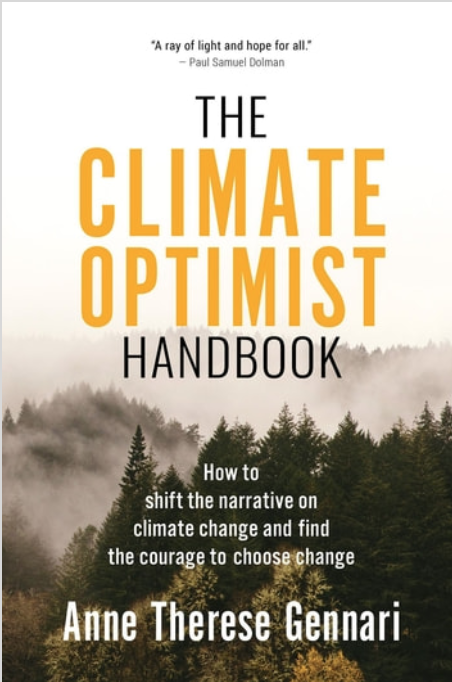
They did a search on the internet and found there was a new book written by Anne Therese Gennari called, “The Climate Optimist Handbook: How to Shift the Narrative on Climate Change and Find the Courage to Choose Change.” https://www.theclimateoptimist.com/book They bought the book and listened to her being interviewed on YouTube.
She now offers a Master Class course on Climate Optimism: https://www.theclimateoptimist.com/the-climate-optimist-master-class
Miranda and Harland found many more positive climate happenings, plus a number of helpful books and newsletters. I will share these with you in my next blog, “Climate Optimist – Part 2.”
Til next time,
Chris Snyder, Climate Optimist
You May Also Like

Saying Positive and Supportive Things to Others
August 13, 2023
Cambodia!
January 13, 2019